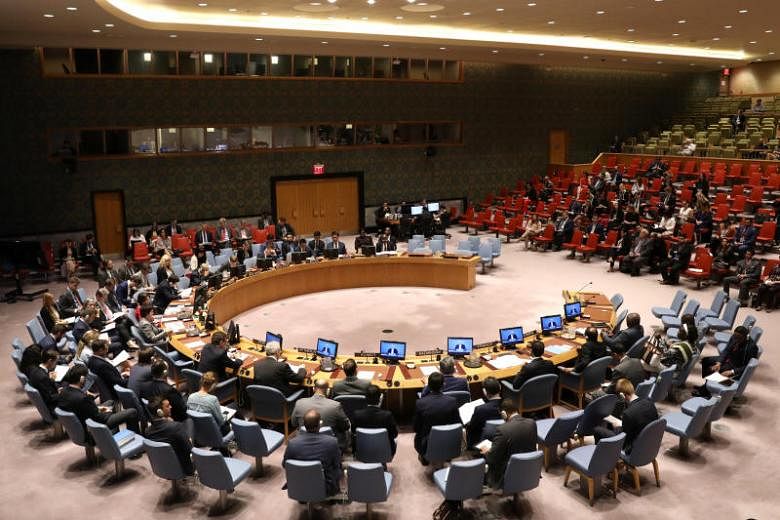SINGAPORE - A new United Nations (UN) treaty on mediation will be named after Singapore, following a signing ceremony due to take place here next year.
To be named the Singapore Convention on Mediation, it will be the first UN treaty named after Singapore.
The treaty will make it easier for businesses to enforce mediated settlement agreements, which is expected to improve cross-border trade.
Explaining the significance of the naming, Law and Home Affairs Minister K. Shanmugam said on Monday (July 23) that the decision "puts Singapore on the map for thought leadership in international trade laws".
"We played a key role in the negotiations, the drafting of the treaty. The countries all agreed for it to be called the Singapore Convention, and they all agreed to Singapore hosting the signing ceremony," he said in a media interview at the Ministry of Law.
The naming also means businesses are likely to look to Singapore as a key destination for mediation, he added.
"Singapore offers a first-class set of courts, internationally accepted and respected. We are top quality in arbitration, and now we have a mediation product as well. Of course, the treaty applies to all countries, but we will be among the places where people will come to for mediation."
The recommendation to sign the treaty here was made at the 51st Commission session of the UN Commission on International Trade Law, which met from June 25 to July 13 in New York, the Ministry of Law (MinLaw) said.
Compared with other methods of dispute resolution, such as arbitration, mediation is considered a less antagonistic way to resolve disagreements as it encourages the two parties to reach an agreement by finding common ground.
It also allows longer-term solutions to be considered and for the mediating parties to have greater control over the outcome of the dispute resolution process.
With this new treaty, there will be a common international understanding of how enforcement can take place across jurisdictions.
This is in contrast to the current, pre-treaty situation, where parties would not automatically look to mediation as a means to resolve cross-border disputes, "because there is no teeth and no guarantee that their settlement would be easily enforced", said Ms Sharon Ong, director of MinLaw's policy advisory division.
On the whole, the treaty provides more certainty in using mediation to resolve disputes, making it a cheaper and faster option than before, said Ms Natalie Morris-Sharma, MinLaw's international legal division director.
The UN treaty is the latest move by Singapore to strengthen the use of mediation as a tool for dispute resolution.
Apart from having the Singapore Mediation Centre, a not-for-profit organisation providing commercial mediation services, the Republic also set up, in 2014, a Singapore International Mediation Institute, which acts as an independent professional standards body.
Last year, it also enacted a Mediation Act to provide a framework for the enforceability of mediated settlement agreements. With this act, mediated agreements can be recorded as orders of Singapore's courts, allowing parties to enforce their terms more easily.
The new treaty will benefit businesses, said Mr Shanmugam.
With project work, infrastructure work, trade flows in the region growing exponentially, there needs to be a variety of methods of dispute resolution, he said, adding that many companies try to keep their relationships going even when disputes arise.
Asked if the hosting of the summit between US President Donald Trump and North Korean leader Kim Jong Un had a bearing on naming the treaty after Singapore, Mr Shanmugam said it did not. Rather, the naming happened because Singapore took a lead role in negotiations and is recognised as a credible legal jurisdiction, he said.
"Because we contributed quite a lot, our lawyers who were doing the negotiations contributed quite a lot to the thought process, so people could see that Singapore was a natural place for the signing to take place. But it doesn't come about automatically."
Noting the positive impact the treaty is likely to have on Singapore, chairman of the Singapore International Mediation Centre George Lim said: "Having Singapore's name associated with such a ground-breaking agreement will boost our status as an international dispute resolution hub."
"It is a recognition of Singapore's thought leadership in mediation, and the effort that has been put in to develop our mediation framework over the years," he said.


